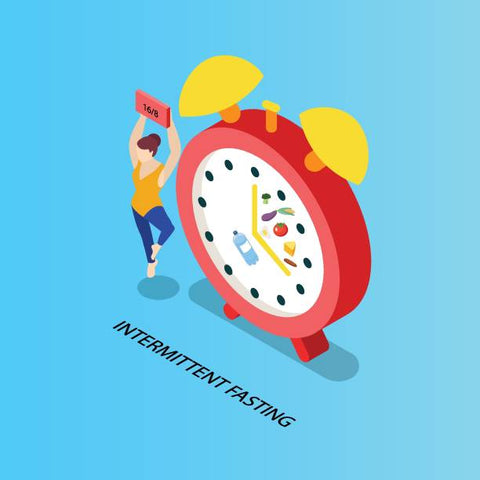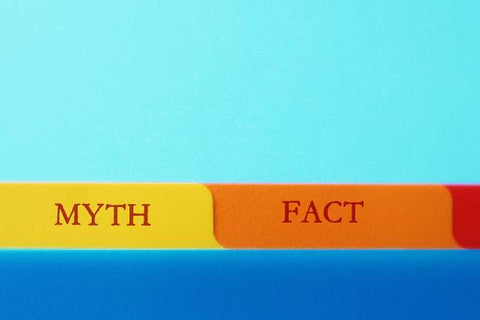In a world flooded with weight loss tips and tricks, it's hard to separate fact from fiction.In this blog we will discuss some of the most popular weight loss tips to help you navigate the sea of misinformation.
Eating with Distractions: Does It Help?

Many people believe that distracting yourself while eating can actually help you eat less. Some common strategies include turning off the lights and playing music while eating. However, this technique might not be as effective as it seems. When you're not fully present while eating, you may end up consuming more calories without even realizing it. It's best to focus on your meal and enjoy it mindfully to avoid overeating.
The Magic of Smaller Plates

Have you ever heard the advice to use smaller plates to control portion sizes? Research has shown that using smaller plates can trick our brains into thinking that we're eating more than we actually are. By reducing the size of our plates, we naturally decrease the amount of food we serve ourselves, leading to more controlled portions and potentially weight loss.
Intermittent Fasting And Its Effects

Intermittent fasting has gained popularity as a weight loss strategy, but intermittent fasting can indeed help reduce calorie intake and promote weight loss. However, he also warns that some people may develop disordered eating habits during fasting periods. Additionally, intermittent fasting has shown other health benefits beyond weight loss. It's essential to approach fasting with caution and consult a healthcare professional before attempting it.
The Power of Protein


Protein is often hailed as a key nutrient for weight loss and muscle building. But getting protein from whole foods is more advantageous than relying on supplements. Whole foods rich in protein, such as tuna and salmon, offer additional nutrients like omega-3 fatty acids. However, it's important to remember that protein-rich foods can also contain fats and carbohydrates. Balancing your macronutrients is crucial for a healthy diet.
Mindful Eating: The Key to Weight Loss?

Have you heard about intuitive eating as a weight loss strategy? By practicing mindful eating, you can listen to your body and recognize when you're truly hungry or satisfied. This approach encourages a healthy relationship with food and can prevent overeating. It's all about finding the right balance and nourishing your body without restriction or deprivation.
Exercise: Finding What Works for You

Exercise is a crucial aspect of a healthy lifestyle, but what type of exercise is best for weight loss? Both cardio and strength training offer different benefits for optimal health. Cardio exercises like running are great for cardiovascular health and increasing heart rate variability. On the other hand, strength training not only burns calories during the workout but also helps build muscle, which boosts metabolism. Finding a balance between both types of exercise is key.
The Importance of Diet and Lifestyle

Ultimately, weight loss is more than just following specific tips and tricks. While exercise plays a role, the foundation of weight loss lies in what we eat. Planning meals, avoiding excessive snacking, and prioritizing quality nutrition are crucial. Additionally, taking care of our sleep and mental well-being contributes to overall health and enhances weight loss efforts.
Separating Fact from Fiction

With so much information out there, it's easy to get overwhelmed by contradictory weight loss advice. Remember, it's essential to consult a healthcare professional or registered dietitian before making any significant changes to your diet or lifestyle. By staying informed and making evidence-based choices, you can navigate the world of weight loss with confidence.
Conclusion:
Weight loss is a complex journey that requires a combination of healthy habits, including mindful eating, regular exercise, and a balanced diet. While some popular weight loss tips have merit, it's crucial to approach them with caution and consider individual needs and preferences.












